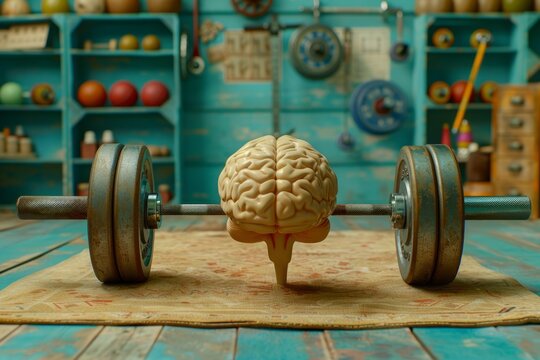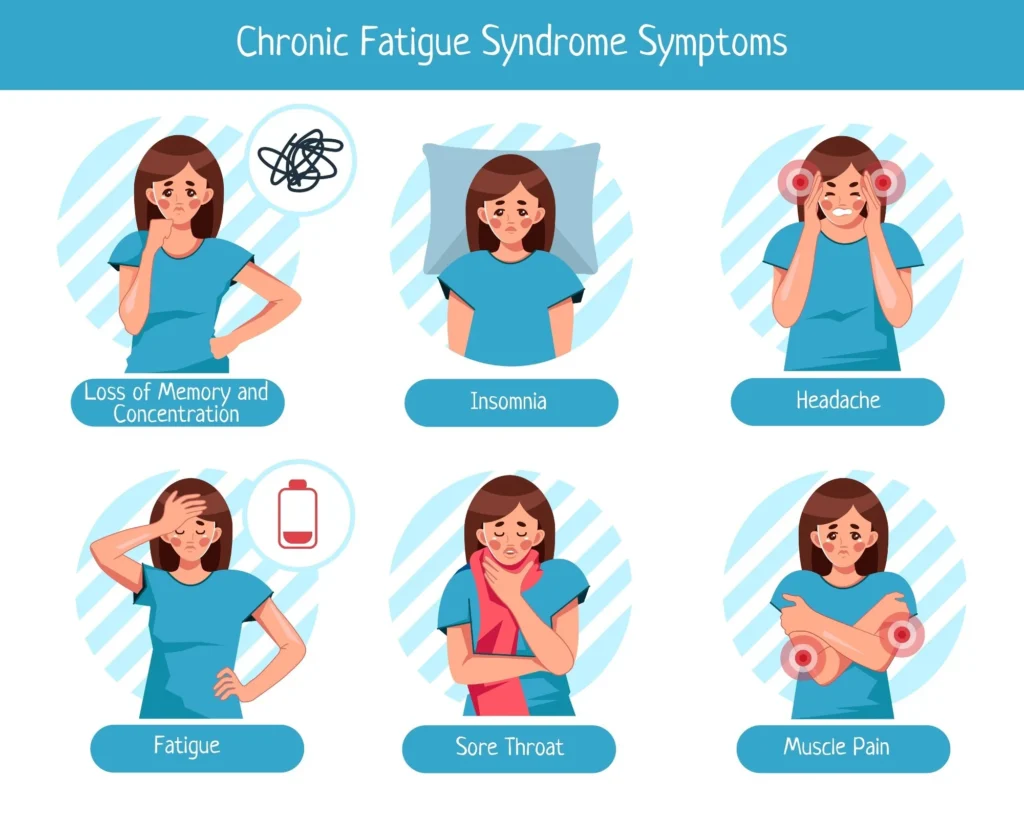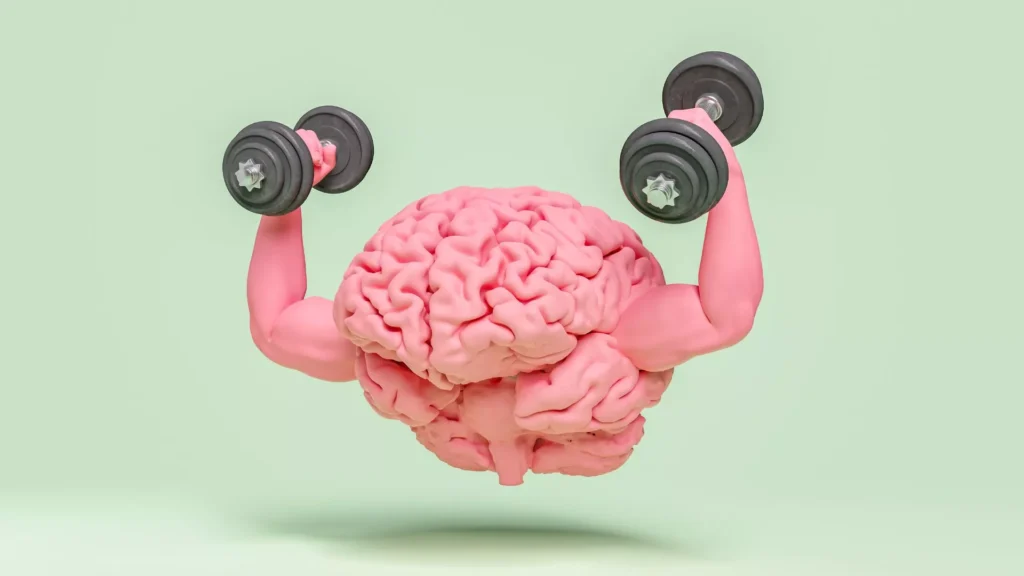Health is Wealth (Small Changes, Life-long Impact)

A persistent sense of burnout, depletion, or low energy is called fatigue. It may be mental, physical, or a mix of the two. Anybody can get tired; most adults do at some point in their lives. (Managing Workout Fatigue: Boosting Your Mindset)
Fatigue can cause health problems and interfere with day-to-day functioning. Regular physical activity can actually help lower overall weariness levels and raise energy levels over time, even if the physical exertion involved in exercise can initially cause exhaustion.
According to a study that provided a thorough overview of the prevalence of fatigue in the general population worldwide, general fatigue affected 20.4% of adults and 11.7% of children, while chronic fatigue affected 10.1% of adults and 1.5% of children.
Numerous things, such as physical strain, mental stress, sleep deprivation, bad diet, illnesses, or certain drugs, might contribute to it.
A person’s capacity to carry out everyday tasks effectively and their general well-being can be negatively impacted by fatigue, which can show itself as both physical and mental exhaustion.
Managing fatigue frequently entails figuring out and treating its root causes, which include enhancing sleep, eating a healthy diet, controlling stress, and, if required, getting medical help.
Managing Workout Fatigue: Boosting Your Mindset
Fatigue can affect in various ways

Fatigue has a profound effect on brain function, affecting emotions, thought processes, and general mental functioning.
Here are some ways it impacts many facets of brain function:
Diminished Cognitive Abilities
Fatigue can hinder jobs requiring focus, problem-solving, and decision-making since it slows down processing speed. Errors, trouble concentrating, and decreased productivity may result from this.
A Decrease in Emotional Control
Increased irritation, annoyance, or worry might result from tired brains that are less able to control emotions. Additionally, fatigue can impair impulse control, making it more difficult to maintain composure and concentration.
Impairment of Memory
Both short-term and long-term memory can be weakened by fatigue. The brain’s storage and retrieval systems are impacted, making it more difficult to remember specifics, retain new knowledge, and use working memory efficiently.
Affected Focus and Attention
Fatigue impairs one’s ability to focus and sustain attention, which can lead to brain drift and affect one’s capacity to finish tasks and stay involved.
Decreased Ability to Make Decisions Fatigue impairs judgment and can lead to a person making a risky option or not making a decision at all, which makes it harder to make decisions. The brain has trouble evaluating circumstances and taking implications into account.
Reduced Creativity and Problem-Solving Because it requires more mental effort to think creatively or view problems from other angles, fatigue reduces the brain’s ability to think creatively and solve problems.
Reduced Motor Coordination
Particularly in tasks requiring precise movements, the brain’s ability to regulate motor skills might be impaired, which can result in decreased coordination, slower reaction times, and an increased risk of errors or accidents.
In order to support healthy brain function and general well-being, it is crucial to prioritize rest, manage stress, and maintain a balanced lifestyle, as chronic fatigue can exacerbate these consequences.
Managing Workout Fatigue: Boosting Your Mindset

TYC-Trust Your Choice Natural Magnesium Oil Mist Spray, Muscle Relaxant, Reduces Fatigue, Relieves Foot Tension, Helps in Better Sleep, For Men and Women (100 ml Pack of 1)
-48% ₹365
M.R.P.: ₹699
Inclusive of all taxes
How does fatigue affect you mentally?

Reduced Creativity and Problem-Solving
Fatigue reduces the mental flexibility and focus needed for creative thinking and problem-solving. It becomes more difficult to think creatively or approach problems from different angles as a result.
Enhanced Stress Sensitivity The body’s stress reaction is heightened by fatigue, making even little difficulties seem insurmountable. This increased susceptibility to stress can worsen anxiety and make it more challenging to cope with daily demands.
Making Bad Decisions
The brain’s capacity to analyze options and ponder implications is weakened by fatigue, which results in poorer decision-making and higher impulsivity. People may be more likely to make poor decisions or make rash decisions as a result.
Mental exhaustion can set off a vicious cycle in which diminished cognitive function and unstable emotions result in increased stress, which in turn exacerbates exhaustion. Making sleep a priority, taking regular breaks, and maintaining a healthy diet can all help fight weariness and improve mental and cognitive health.
What deficiencies cause fatigue?
Among the most frequent reasons for inexplicable exhaustion are vitamin and mineral deficiencies, such as those in B2, B3, B5, B6, B9, B12, C, D, iron, and magnesium.
Managing Workout Fatigue: Boosting Your Mindset
Over 50% of people worldwide suffer from vitamin D deficiency, and 12.5% suffer from iron deficiency anemia.
Due to their critical roles in energy synthesis, oxygen transport, and general cellular health, a number of nutritional deficiencies can cause weariness.
The following deficiencies are most frequently associated with fatigue:
Impact of Iron Deficiency: The production of hemoglobin, which carries oxygen in the blood, depends on iron. Iron deficiency anemia, which is brought on by low iron levels, can cause weakness, exhaustion, and difficulty concentrating.
Sources include fortified cereals, beans, lentils, seafood, chicken, red meat, and tofu.
Impact of Vitamin B12 Deficiency: Red blood cell production and neurological function depend on vitamin B12. If a deficiency is not corrected, it may result in weariness, mental confusion, and even nerve damage.
Meat, fish, dairy products, eggs, and fortified plant-based milks or cereals (for vegans and vegetarians) are some of the sources.
Impact of Vitamin D Deficiency: Immune system performance, mood modulation, and bone health all depend on vitamin D. Fatigue, sadness, and muscle weakness are all linked to low vitamin D levels.
Sources include eggs, fortified dairy products, fatty seafood, sun exposure, and supplements as directed.
Impact of Magnesium Deficiency: Magnesium plays a role in more than 300 metabolic processes, including the synthesis of energy and the operation of muscles and nerves. Fatigue, trouble sleeping, and cramping in the muscles might result from a deficit.
Sources include beans, whole grains, leafy green vegetables, nuts, and seeds.
Impact of Folate (Vitamin B9) Deficiency: Folate, like B12, is essential for DNA synthesis and the creation of red blood cells. Fatigue and anemia may result from a deficiency.
Leafy greens, legumes, seeds, nuts, and fortified cereals are some of the sources.
Effects of Potassium Deficiency: Potassium aids in controlling nerve impulses, muscular contractions, and fluid balance. Fatigue, cramps, and muscle weakness can result from low potassium levels.
Oranges, potatoes, spinach, beans, and bananas are some of the sources.
Impact of Vitamin C Deficiency: Vitamin C aids in iron absorption and immune system support. Weakness, weariness, and decreased immunity might result from a deficit.
Citrus fruits, broccoli, tomatoes, bell peppers, and strawberries are some of the sources.
Impact of Zinc Deficiency: Zinc is involved in energy metabolism, cellular repair, and immunological function. Weakened immunity and weariness can be caused by low zinc levels.
Sources: Nuts, seeds, legumes, meat, and seafood.
In order to test for deficiencies and find the best way to restore low levels through diet or supplementation, it’s a good idea to speak with a healthcare professional if fatigue is persistent.
Managing Workout Fatigue: Boosting Your Mindset
What is the fastest way to cure fatigue?

By maintaining consistent energy levels throughout the day, eating regularly can help fight fatigue.
This is how it operates:
Eating frequently can help fight fatigue
Avoids Energy Mishaps
An extended period of fasting can cause a precipitous drop in blood sugar, which can cause exhaustion, agitation, and trouble focusing. Regular eating helps keep focus and avoids these crashes.
Keeps Blood Sugar Levels Consistent
Blood sugar dips that can result in feelings of fatigue and low energy can be avoided by eating balanced meals or snacks every three to four hours. You stay awake and energized when your blood sugar is balanced.
keep moving
Increases Blood Flow
You feel more alert and invigorated when you move because it boosts blood flow, which gives muscles and tissues more oxygen and nutrients. Additionally, improved circulation lessens sensations of sluggishness and enhances mental sharpness.
Endorphins are released
Exercise promotes the release of endorphins, sometimes referred to as “feel-good” hormones, which elevate mood and lessen fatigue. Even a quick stroll can improve your mood and give you more energy.
Enhances the Quality of Sleep
Frequent exercise can improve sleep quality by making it simpler to get to sleep and stay asleep. You’ll wake up feeling more rested and less exhausted during the day if you get better quality sleep.
Managing Workout Fatigue: Boosting Your Mindset
get more energy by loosing weight
By increasing energy efficiency, lowering physical strain, and boosting general health, losing weight can help lessen weariness.
Losing weight helps relieve fatigue in the following ways:
Enhances Cardiovascular Performance
Losing weight eases the strain on the heart and lungs, enabling them to function more effectively. Better oxygen flow to muscles and tissues as a result of enhanced cardiovascular health lessens fatigue during daily tasks.
Decreases Inflammation
Fatigue can result from chronic inflammation, which is frequently associated with excess body weight. Losing weight reduces inflammation, which boosts energy and lowers the risk of illnesses linked to weariness.
Improves the Quality of Sleep
Losing weight can help people sleep better, especially if they have sleep problems like sleep apnea, which is common in people who are overweight. More restful sleep and less daytime weariness are the results of better sleep quality.
Increases Metabolic Effectiveness
Being overweight might slow down your metabolism and make you feel lethargic. Your metabolism can work more effectively and provide you with more energy throughout the day if you reduce your fat stores.
Sleeping well
Since good sleep promotes the body’s natural restorative processes and increases both physical and mental vitality, it is one of the best strategies to lessen weariness.
Here’s how getting a good night’s sleep helps fight off fatigue:
Encourages Physical Recuperation
The body rebuilds and regenerates tissues, such as muscles, bones, and immune cells, while you sleep deeply. By reducing physical exhaustion, this healing process helps you wake up feeling stronger and more rested.
Restores Vitality
Your body uses sleep to restore its glycogen stores, which gives you energy throughout the day. Glycogen levels stay low when you don’t get enough sleep, which leaves you feeling tired and lacking in energy.
Managing Workout Fatigue: Boosting Your Mindset
reducing stress
Since excessive stress can result in both physical and mental exhaustion, lowering stress is essential to battling fatigue.
Here are some ways that stress management and reduction might lessen weariness:
Reduces Tension in the Body
Muscle tightness brought on by stress frequently causes weariness and discomfort. You may ease this tension, encourage relaxation, and lessen the physical strain on your body by lowering stress.
Controls Hormonal Levels
Prolonged stress raises the stress hormone cortisol, which can cause sleep disturbances, low energy, and exhaustion. Stress reduction promotes cortisol normalization, which enhances energy levels and sleep quality.
Improves the Quality of Sleep
Insomnia or disturbed sleep can result from stress interfering with one’s ability to fall and stay asleep. Stress management improves the environment for healthy sleep, which is crucial for preventing weariness.
Enhances Mental Acuity
Excessive stress can cause “brain fog,” which impairs focus and clarity of thought. Stress reduction improves cognitive performance, increasing concentration and decreasing mental exhaustion.
Talking therapy
When weariness is connected to stress, anxiety, depression, or other emotional difficulties, talking therapy—also referred to as psychotherapy or counseling—can be a useful strategy for overcoming it.
Talking therapy can help combat fatigue in the following ways:
Lessens Stress and Anxiety
Counselors offer a safe space for talking about concerns and anxieties, which helps lower anxiety and stress levels. Reducing these levels helps ease physical and mental exhaustion.
Determines the Root Causes
Through talking therapy, people can investigate the underlying causes of their weariness, such as lifestyle choices, unresolved trauma, or emotional stress. People can create plans to deal with these problems by recognizing them.
Improves Coping Mechanisms
Therapy gives people coping mechanisms to better handle stress and challenging emotions. This can help people respond to problems without getting tired and lessen feelings of overwhelm.
Enhances Mental Health and Mood
Therapy can result in improvements to one’s mental health and mood. Therapy can help fight depressive or hopeless sentiments that lead to exhaustion by addressing negative thought patterns and encouraging positive thinking.
Managing Workout Fatigue: Boosting Your Mindset
Cut caffeine
For some people, especially those who might be too dependent on caffeine to regulate their energy levels, cutting back on caffeine can lessen weariness.
Here’s how cutting back on caffeine can help fight off fatigue:
Maintains Energy Level Stability
Caffeine might give you a short-term energy boost, but as it wears off, it can cause crashes. By cutting back on caffeine, one can avoid the cycle of highs and lows that can lead to exhaustion and achieve more consistent energy levels throughout the day.
Enhances the Quality of Sleep
As a stimulant, caffeine can disrupt sleep, particularly if it is taken in the afternoon or evening. Reducing caffeine use may help people sleep longer and with higher quality, which would improve their bodies and minds and lessen weariness.
Promotes wholesome energy sources
Caffeine dependence can overshadow the value of other, healthier energy sources, such as wholesome meals and enough water. Reducing caffeine intake may help people prioritize better energy-boosting practices and become more sensitive to their bodies’ natural cues.
Promotes Hydration
Due to its diuretic properties, caffeine may cause an increase in fluid loss. Because dehydration can exacerbate feelings of exhaustion, cutting back on coffee can help maintain appropriate hydration levels. Maintaining proper hydration improves cognitive function and general energy levels.
Drinking less alcohol
Alcohol is metabolized by the liver, and excessive drinking can cause liver disease and strain.
Reducing alcohol intake can support liver health and increase energy levels because a healthy liver is necessary for both detoxification and energy production.
Reducing alcohol use frequently results in healthier lifestyle choices like better eating, consistent exercise, and better sleep hygiene. These healthy lifestyle adjustments can greatly increase vitality and decrease exhaustion.
Hangovers from drinking alcohol can include headaches, exhaustion, and cognitive decline. Cutting back on alcohol use helps people think more clearly and have more energy the next day by reducing the likelihood of hangovers.
Encourages Mental Experiencing. Alcohol can affect one’s ability to think clearly and cause “brain fog.” People who drink less report better mental clarity, focus, and general cognitive performance, all of which can help fight off fatigue.